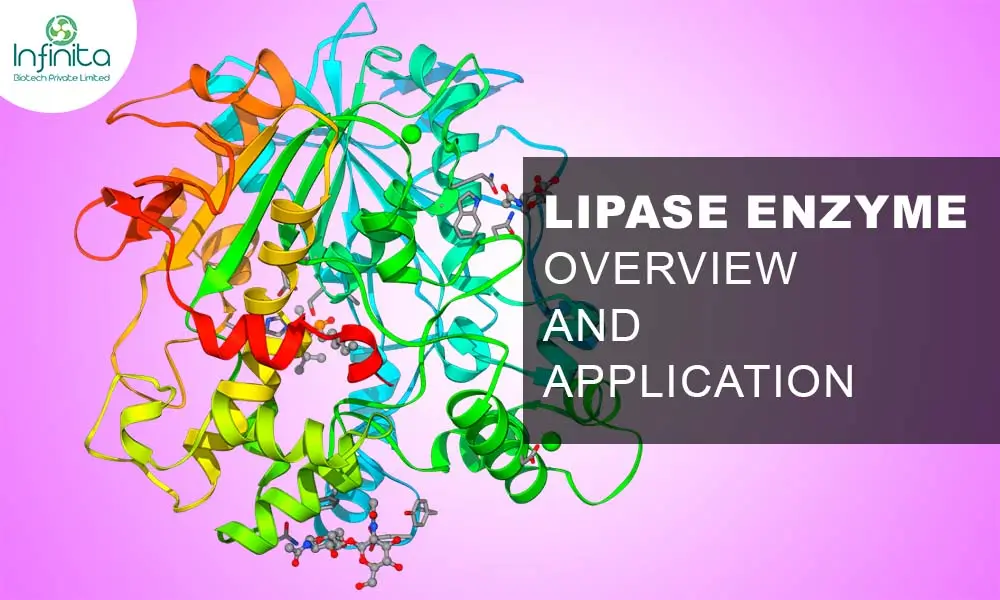Enzymes have been used for different purposes since ancient civilisations. Today, there are almost 4000 enzymes, and nearly 200 are in commercial use. About 75% of all industries’ enzymes (including lipase) are hydrolytic, and most industrial enzymes are of microbial origin. Since enzymes are environmentally-friendly, the use of enzymes in the various food industries is increasing tremendously. One such is Lipase enzyme, which is cost-effective, non-toxic, and eco-friendly.
In this write-up, we will discuss everything about lipase enzymes and their applications. Without much ado, let’s get started.
An Overview of Lipase Enzyme
Lipase is an enzyme that breaks down fats during digestion. This enzyme is found in many plants, animals, bacteria, and moulds. In most living organisms, the lipase enzyme plays a crucial role in the digestion and transportation of lipids (fats and oils). Since lipase breaks down fat into smaller pieces, it is quite possible that lipase supplements might help in digestion. That’s the reason why many people use lipase as a medicine.
How Does Lipase Enzyme Work?
The lipase enzyme plays a crucial role in breaking down fats, oil, and triglycerides. It is an essential enzyme for full digestion of fats to their smaller fatty acid components. You must know that fat digestion begins in the mouth by the action of lingual lipase in the saliva. Lipase is water-soluble, so it can only act only on the surface of fat molecules. Further, the emulsification by bile salt breaks down the bigger fat molecules into tiny droplets and increases the surface area of fat molecules to be acted on by pancreatic lipase. The resultant fatty acids and glycerol are absorbed by the intestinal wall. The lipase present in the bloodstream acts on these triglycerides, and the consequent fatty acids and glycerol are absorbed by the tissues.
Industrial Applications of Lipase Enzyme
The industrial applications of lipase enzymes in various industries include:
-
Lipase in the food industry
Commercial lipases are used in the food industry for adding flavour to dairy products and processing other food containing fats. They can also enhance the characteristic flavour of cheese by acting on the milk fats to produce free fatty acids after hydrolysis.
-
Lipase in the cosmetic industry
Presently, lipase is known to be an essential enzyme for biotechnological applications. In the cosmetic industry, this enzyme functions as an active ingredient in the cosmetic formulation and biocatalysts in synthesising specific cosmetic chemicals.
-
Lipase in the fat and oil industry
Lipase produces the hydrolysis of triglyceride to glycerol and free fatty acids that result in removals of fats and grease from skin and hides. Cocoa fat butter is used in a high volume in food and confection, and palm oil is a low volume product.
How To Get Lipase Enzymes For Industrial Use?
The use of enzymes is growing with each passing day due to the number of benefits it offers in the food industry. If you’re looking to buy lipase enzymes for an array of industries like food, wine, agriculture, pharmaceuticals, textile, etc., Infinita Biotech is here to serve you. We’re a leading enzyme manufacturing company offering eco-friendly and quality enzymes to clients at pocket-friendly rates. We can provide you with everything under a single roof for whatever type of enzyme you’re searching for. Connect with us today to get quality lipase enzymes at economical rates.

 Summarize this Article with AI
Summarize this Article with AI






